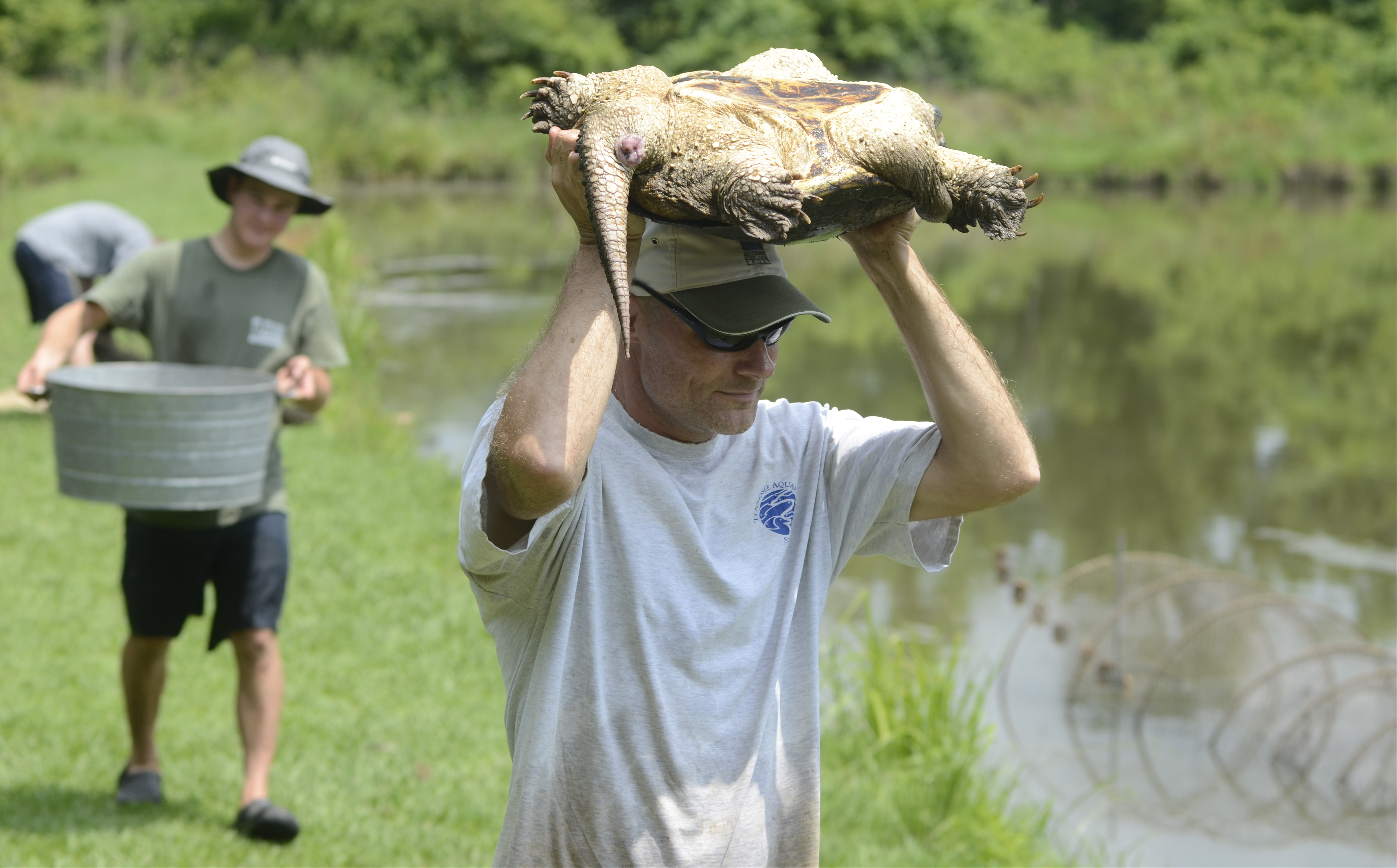 Dalton State College biology professor Chris Manis carries a snapping turtle on his head while volunteer Peter Lugthart, a senior at McCallie, carries another in a tub as they work on a turtle study at the Lakeshore Park in Dalton, Ga. Turtles are trapped, measured and marked for identification purposes before being release back into the water.
Dalton State College biology professor Chris Manis carries a snapping turtle on his head while volunteer Peter Lugthart, a senior at McCallie, carries another in a tub as they work on a turtle study at the Lakeshore Park in Dalton, Ga. Turtles are trapped, measured and marked for identification purposes before being release back into the water.Dalton State College biologists want to make ponds and a wetland at a Dalton, Ga., city park more turtle friendly.
So this week and next they're trapping Northern snapper, stinkpot, Eastern painted, yellow-bellied slider, river cooter and Eastern spiny soft shell turtles at Lakeshore Park. They weigh, measure, check the turtles' sex and mark them using a system of painless notches in their shell.
"My goal is to catch every single turtle," biology professor Chris Manis said, referring to the multiyear turtle census that's in its second year.
One day, the information should let biologists gauge how turtles are helped by proposed improvements -- such as reducing the slope of the ponds' steep banks to make it easier for turtles to crawl out and lay their eggs, he said.
"We want to establish numbers on the populations to see how they're affected through the restoration," student researcher Cris Shelton said.
Efforts to 'rewild'
The biologists hope to restore, or "rewild," the roughly three acres of wetland and ponds.
The spring-fed wetland probably was about 10 acres in size, Shelton said, before it was converted into a pond that fed a yarn mill on the site.
Some restoration has taken place naturally, including by a beaver that has built dams in the wetland just west of a playing field and track.
"We'd like to have one or two more [beavers] come in," Manis said.
The biologists would like to restore natural vegetation such as sedge, cattails, bull rushes and cypress trees around ponds south of the wetland.
"Right now, they just mow it all the way to the edge," Manis said.
People fish from the banks of the ponds now. They could continue to do so, Manis said, if fishing docks were installed.
"Our ultimate goal would be to 'rewild' it -- but still make it accessible," he said.
Dalton State biology professor John Lugthart said, "All this, of course, is conditional on the funding to do it. We'll need to get some grants."
Wetland proponents got "a little bit of setback" a few weeks ago, Lugthart said, when they found out they weren't getting a $40,000 grant from the National Fish and Wildlife Foundation.
Lugthart thinks funding will come through someday.
Dalton Parks and Recreation Director Steve Card said wetland restoration is on the city's agenda.
"It's actually part of our three-phase plan to improve Lakeshore Park," Card said.
Phase one is renovation of a synthetic turf field, which is partly complete. Phase two is adding more tennis courts.
"Ultimately, phase three would be the restoration of the wetland area," Card said.
Contact staff writer Tim Omarzu at tomarzu@timesfreepress.com or 423-757-6651.
